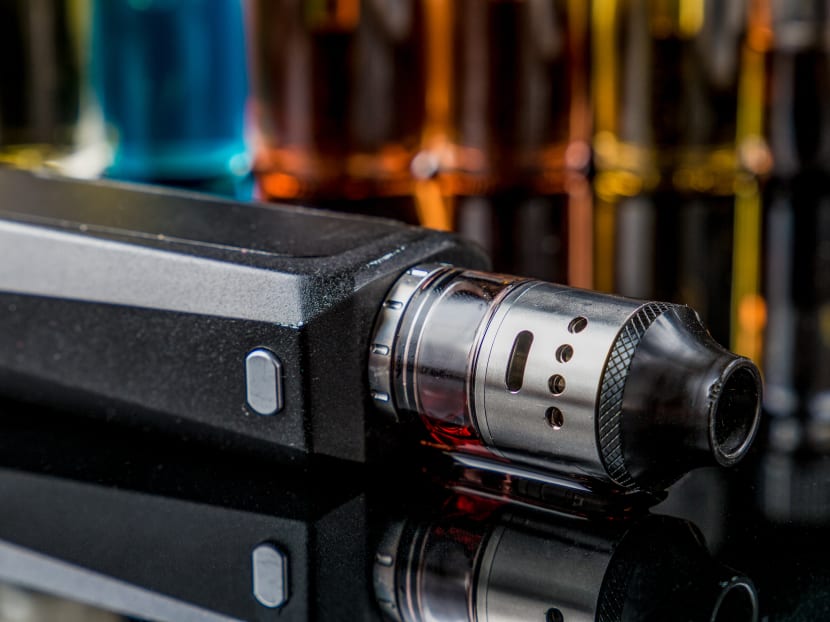Harsher penalties needed for e-vaporiser offences

In March, Parliamentary Secretary for Health Rahayu Mahzam revealed in Parliament that close to 5,000 people were caught for the purchase, use or possession of e-vaporisers in 2021 — more than triple the numbers in 2020.
More worryingly, a third of them were under the age of 18. Vaping has cultivated an image of being modern, new and cool — traits that all appeal to the youth.
Many are not only purchasers but peddlers as well. In February, the Health Sciences Authority (HSA) revealed that it had fined 10 people for selling e-vaporisers here. Two were in their early 20s, while the youngest among the group was only 19.
In Singapore, this illicit business is a lucrative and relatively low-risk option to make a quick buck. The product is easily obtained in neighbouring Malaysia, with plenty of vape shops just across the Causeway in Johor Bahru. Now that the land borders between both countries have reopened, it will be even easier to get access.
And if caught, the punishments are not as severe as other similar crimes. For instance, repeat offenders smuggling in contraband cigarettes risk a jail term of up to six years, while it is only a maximum of 12 months when it comes to e-vaporisers.
The sentences seem even lighter in reality. So far, the biggest penalty associated with an e-vaporiser offence has been a fine of S$99,000. In comparison, the heaviest sentence for contraband cigarette offences was a staggering S$30 million fine and jail time of five years and eight months.
Such figures clearly show that the risk-reward balance of selling e-vaporisers is well on the side of reward. Already, the hauls are getting larger. Last October, HSA seized more than S$2 million worth of e-vaporisers and components in a record haul.
This year has seen seizures being made on an almost monthly basis, as seen in news reports. The efforts by the authorities to curb supply at the border have been laudable.
However, current penalties on e-vaporisers clearly appear to be insufficient as a deterrent. It is time to update the legislation and implement harsher punishment.
For starters, the authorities need to make the penalties for e-vaporiser smuggling on par with that of contraband cigarettes. After all, these devices are essentially a modern version of a tobacco product. Why should the punishment be any different?
Implementing higher fines and longer jail sentences on smugglers will better deter individuals from committing the crime, and sufficiently punish those who decide to carry it out anyway.
Likewise, harsher penalties for the possession and use of e-vaporisers are also needed to curb demand within the country. But these can also be complemented with education. There needs to be more talk about what e-cigarettes really are, their harmful effects on health, and the consequences that come with using them.
With the dual approach of education and punishment, I’m sure that more would think twice about taking a puff, or trying to profit off e-cigarettes.
ABOUT THE WRITER:
The writer is CEO of Crime Stoppers International, an independent non-profit organisation that educates communities worldwide about transnational crimes.
Have views on this issue or a news topic you care about? Send your letter to voices [at] mediacorp.com.sg with your full name, address and phone number.






